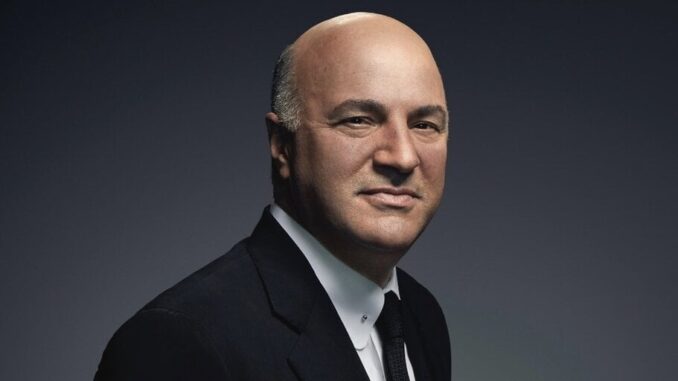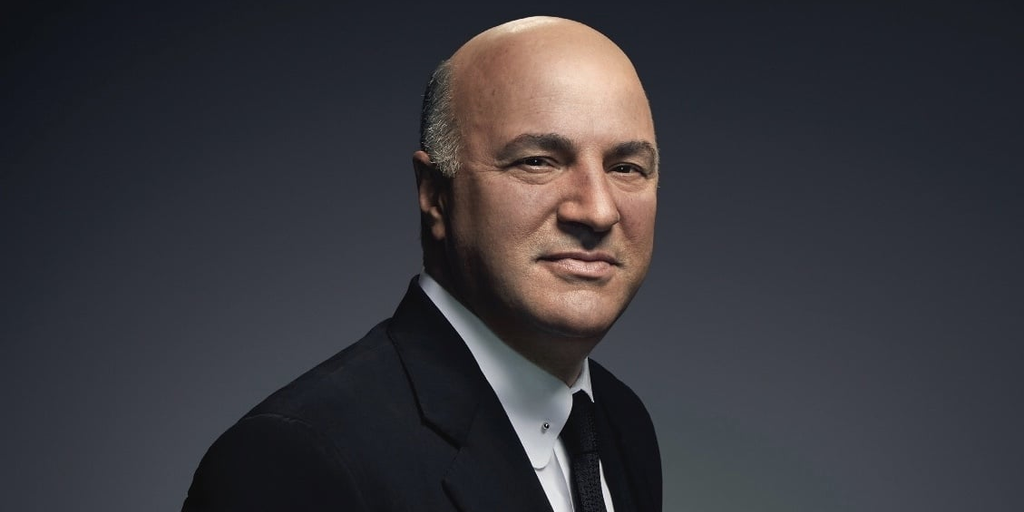
[ad_1]

Canadian entrepreneur and “Shark Tank” star Kevin O’Leary believes crypto cowboys will soon become a thing of the past, as the Securities and Exchange Commission (SEC) casts a legal lasso around two of the industry’s most preeminent firms.
In an interview with Decrypt, O’Leary said the SEC’s back-to-back lawsuits against cryptocurrency exchanges Binance and Coinbase—unveiled this week—will be remembered as an inflection point within the industry, ultimately leading today’s Wild West notion of crypto toward greener pastures.
“I think as an industry, we’re going to leave the past behind, and we’re going to find a new future,” O’Leary said. “There’s so much that this technology offers, and yet it remains mired in an unregulated, rogue-cowboy environment.”
O’Leary said the uptick in regulatory scrutiny that the digital assets industry has confronted following the collapse of FTX is a good thing, explaining that he’s tired of crypto being cast in a negative light, in headlines and on Capitol Hill.
O’Leary was an investor in FTX and served as a spokesperson for the exchange. He’s also one of several defendants named in a class-action lawsuit against celebrities that promoted Sam Bankman-Fried’s now-defunct crypto empire, such as Tom Brady, Larry David, and Shaquille O’Neal.
“In the context of FTX, I do a lot of investing in startups,” O’Leary said, adding he doesn’t agree with claims laid out in the lawsuit. “I have great lawyers […] but I’ll let the courts decide.”
His comments come after Binance and the company’s CEO Changpeng Zhao were hit with 13 civil charges by the SEC on Monday. The agency claims Binance engaged in an “extensive web of deception” by commingling customer funds and deliberately violating U.S. securities laws, among other accusations.
The exchange, which is the largest in the world, has described the lawsuit as “unreasonable” and “misguided.” But O’Leary said the SEC’s enforcement action will likely starve Binance of capital, despite whatever the company may think or argue.
“The truth is, a regulated exchange is far less profitable than an unregulated, rogue one,” O’Leary said. “[That is] until you get sued into the stone age by the SEC. And that’s where Binance finds itself today.”
O’Leary noted that the SEC recommended Biance’s assets be frozen, which will also weigh on the platform as customers cautiously “exit stage right” and withdraw their funds. O’Leary believes the lawsuit will also impact Binance’s ability to expand into other regulatory jurisdictions.
“Maybe you drift off into the shadows, and you only play in the rogue markets—but slowly but surely, you’ll be starved of oxygen,” he said. “It’s not good, let’s look at it that way.”
Coinbase’s legal headaches are a different story, O’Leary said, saying the U.S.’s leading cryptocurrency exchange faces an uphill battle that is less steep than Binance.
Coinbase on Tuesday was struck with several charges saying it failed to register with the SEC as an exchange, clearing house, and broker. The lawsuit also labeled staking products offered by Coinbase as unregistered securities—as well as a slew of tokens trading on the platform.
The exchange has taken the SEC to court over its so-called petition for rulemaking that asks for clearer rules on crypto, arguing the industry has been stifled by the agency’s regulatory approach. On Tuesday, Coinbase CEO Brian Armstrong underscored that message on Twitter and signaled the exchange is prepared to defend itself.
“Instead of publishing a clear rule book, the SEC has taken a regulation by enforcement approach that is harming America,” Armstrong said. “So if we need to avail ourselves of the courts to get clarity, so be it.”
Regarding the SEC complaint against us today, we’re proud to represent the industry in court to finally get some clarity around crypto rules.
Remember:1. The SEC reviewed our business and allowed us to become a public company in 2021.2. There is no path to “come in and…
— Brian Armstrong 🛡️ (@brian_armstrong) June 6, 2023
O’Leary said that Coinbase’s decision to “go into the ring with the SEC” is a turnoff for institutional investors, pointing to the exchange’s sinking stock price. He said the fact that Coinbase has opted not to reach a settlement with the agency, preferring litigation instead, doesn’t inspire confidence in shareholders.
“The idea that you can beat the SEC—an institution with unlimited resources that has made a very focused charge—that’s not easy odds, and it’s not great for investors,” O’Leary added.
SEC Chair Gary Gensler has repeatedly told digital asset firms to “come in and register” with the agency, yet Armstrong said on Tuesday that no such path to regulation with the watchdog exists. O’Leary said institutional investors still aren’t fond of Coinbase’s fight.
“You could understand how institutional investors are tired,” O’Leary said, adding the exchange could do more to become regulated, “as opposed to remaining a pioneer with an endless slew of arrows hitting your back every week as you lose billions of dollars of market cap.”
At the end of the day, O’Leary thinks that many of today’s leading digital asset firms will die off, whether that’s due to a lack of maturity or experience. And they don’t have what it takes to take the industry to the next level, where institutions would feel comfortable re-investing in crypto-related projects or tokens like Bitcoin, he said.
“They don’t understand the concept of integrating the global financial system in a way that allows institutions to participate,” O’Leary said. “We have to thank them for their service and their entrepreneurship, but they have to go.”
Stay on top of crypto news, get daily updates in your inbox.
[ad_2]
Source link




